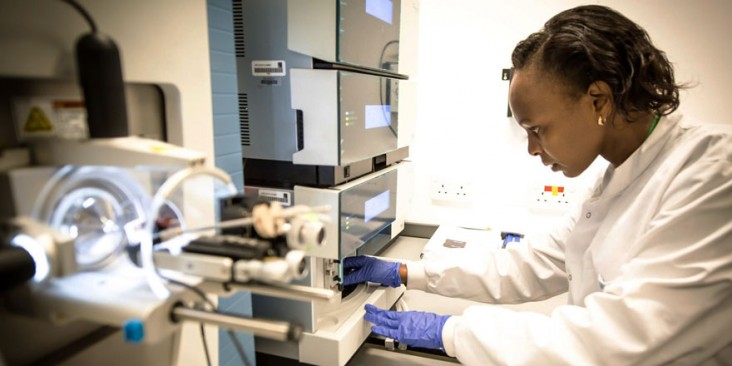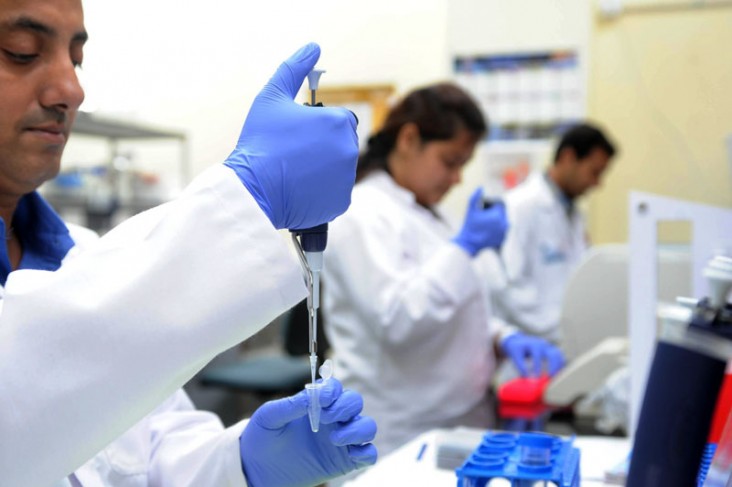- What We Do
- Agriculture and Food Security
- Democracy, Human Rights and Governance
- Economic Growth and Trade
- Education
- Environment and Global Climate Change
- Gender Equality and Women's Empowerment
- Global Health
- Humanitarian Assistance
- Transformation at USAID
- Water and Sanitation
- Working in Crises and Conflict
- U.S. Global Development Lab
Speeches Shim

HIV and AIDS continue to impose a global burden, especially in developing countries. Viral infectious diseases are most effectively controlled – some even eradicated – through prevention programs that include a vaccine. Since no single approach to HIV prevention is likely to have a dramatic impact on its own, integrated approaches to HIV prevention, detection and management that are tailored to specific populations and settings may achieve the best results. The U.S. Agency for International Development (USAID) invests in new biomedical tools, like vaccines, to reverse this pandemic, knowing it will require carefully combined behavioral and biomedical strategies to prevent HIV. USAID is driven by the understanding that the most critically important tool to control the HIV epidemic will be a safe and globally effective HIV vaccine. For more than 15 years, the Agency's investments have enabled important discoveries for the HIV vaccine field and have built critical capacity for clinical research in the regions hardest hit by HIV and AIDS.
USAID Support of HIV Vaccine Research and Development

Current Efforts toward the Discovery of a Preventive HIV Vaccine
After USAID's nearly 2 decades of continuous dedication toward supporting research and development (R&D) for a safe and globally-effective HIV vaccine, the Agency designed, competed and awarded 2 complementary 5-year Cooperative Agreements known as the HIV Vaccine and Biomedical Prevention Research Project (HVBP). This project is the Bureau for Global Health's principal mechanism for HIV vaccine R&D through 2021. These two awards will support unique activities that will accelerate a vaccine while enhancing the capacity of African scientists and engaging effective communities through strategic partnerships.
- Award 1 focuses on conducting preclinical and clinical HIV vaccine R&D while placing particular focus on building the capacity of African scientific talent and institutions that can adeptly engage in vaccine R&D locally, while developing and optimizing new partnerships. This award went to the International AIDS Vaccine Initiative. This new project is referred to as Accelerate the Development of Vaccines and New technologies to Combat the AIDS Epidemic (ADVANCE) [PDF, 569KB].
- Award 2 supports advocacy, literacy, policy, communications, community engagement, and regulatory activities for biomedical HIV prevention R&D globally, with a particular focus on relevant strategic partnerships in low- and lower-middle-income countries. This award went to AVAC, who named this project the Coalition to Accelerate and Support Prevention Research (CASPR) [PDF, 726KB].
Expected Results from IAVI and AVAC Partnerships
- Accelerate the development and clinical testing of novel vaccine candidates
- Strengthen scientific and clinical research capacity in developing countries
- Develop novel vaccines through applied research
- Strengthen the global environment for HIV vaccine development and future access
These two awards were launched in East Africa, led by the scientists and community members who are leading these efforts. USAID is confident that IAVI and AVAC will approach the next phase of HIV vaccine research and advocacy for biomedical HIV prevention R&D through a development lens that especially focuses on the countries and communities that experience the most impact by this ongoing epidemic. USAID is clear that the search for an HIV vaccine must be sustained until this definitive tool is available and added to the cadre of U.S. President's Emergency Plan for AIDS Relief (PEPFAR)-supported interventions to bring a durable end to AIDS.
USAID Takes the Long View for an HIV Vaccine
USAID remains focused on the potential for new technologies to help stop new infections, enabling a real shift in the persistent AIDS pandemic. Key scientific advances in describing how the human immune system may protect itself against HIV drive the discovery of an effective vaccine and are necessary to achieve an AIDS-free generation. An HIV vaccine promises to save millions of lives while saving billions of dollars in care and treatment costs. USAID remains committed to the scientific search for this promising HIV prevention tool as a part of a broad and robust response to achieving the end of AIDS.
Additional Resources
- For Africa, with Africa: The Next Generation of HIV Vaccine Research and Development [PDF, 1.0MB]
- Pathways of Discovery: HIV Vaccine Research and Development [PDF, 641KB]
- Investing in the Future: The Role of Africa in the Search for an HIV Vaccine [PDF, 570KB]
- USAID and Partners Persevere in the Search of an HIV Vaccine
- Two New Awards for HIV Vaccine & Biomedical HIV Prevention Research

Comment
Make a general inquiry or suggest an improvement.